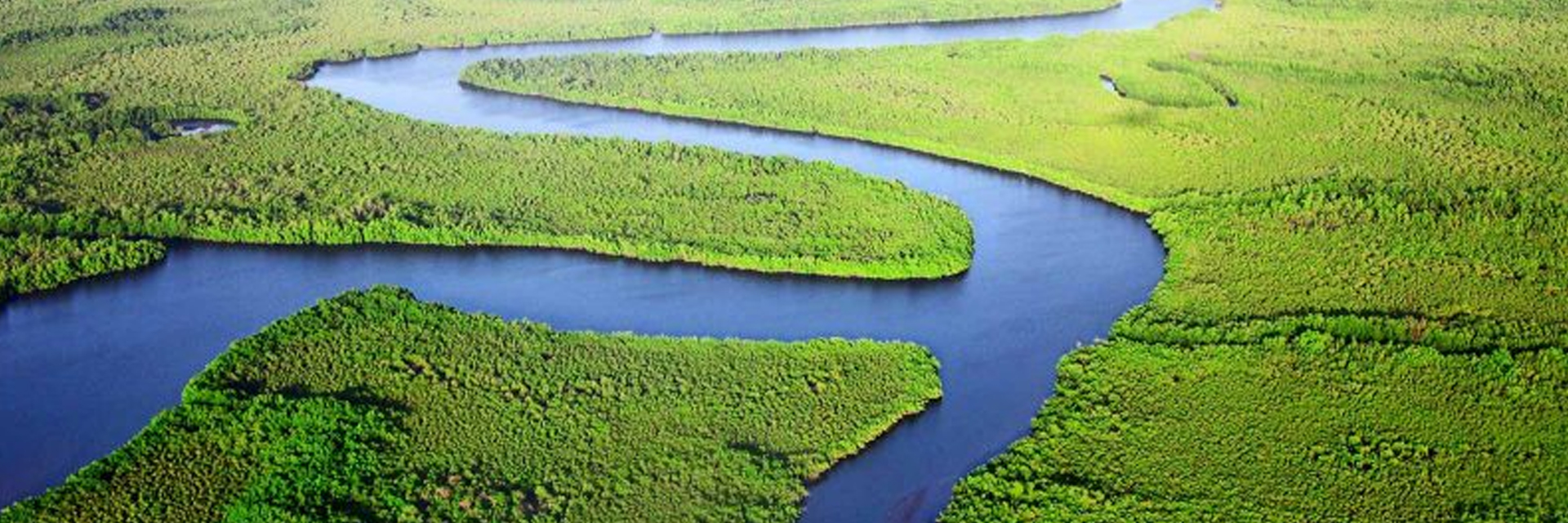(January 10, 2023) Indian-origin youngsters have set a benchmark in global Spelling Bees and have, over the last few years, begun to make their mark in environmental activism too, surging past their peers from around the globe to bag the International Children’s Climate Prize. For the last four years, Indian-origin innovators have won the SEK 100,000 awarded by Swedish company Telge Energi as part of the prestigious prize. The winners of the prize also receive a diploma and medal along with the cash award to continue developing their projects.
Telge Energi is a frontrunner in renewable energy and deals with solar, wind, and hydro power. To support young people’s actions to bring sustainable solutions for the planet earth, it set up the Children’s Climate Foundation. The initiative is an integral part of the organisation’s ongoing work for sustainable development and production of renewable energy for improved climate and environment.
Global Indian celebrates the Indian-origin winners of the International Children’s Climate Prize.
Sparsh Nirav, winner 2022
Resident of Patna, India
Solution: The Thermal Floater
Coming from the rural side of Patna, Sparsh Nirav understands well the pain of frequent power cuts. As a solution, he designed a thermal floater, a device that converts thermal energy from the sun into electrical energy. Sparsh’s floating device can easily be installed on inland or stagnant water bodies. The device is small – a mere 15 cm x 15 cm – and can be connected to several units to generate increased amounts of energy. The jury was impressed to learn that his solution is three times more efficient than a typical solar panel of the same size. Apart from converting thermal energy, the device provides a range of environmental benefits, including the reduction of evaporation (increasing water availability for other uses) and the reduction of algal bloom in freshwater.
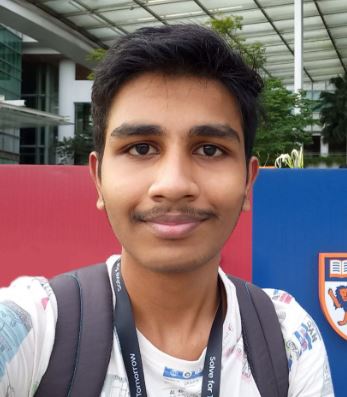
Sparsh Nirav
Since it makes use of water surfaces, such as dam reservoirs, wastewater treatment ponds or drinking water reservoirs, it reduces pressure on land resources. The jury of Children’s Climate Prize found the idea innovative, easy to implement and accessible enough in countries where land resources are scarce, “This solution creates a huge potential globally,” remarked the climate prize jury.
Reshma Kosaraju, winner 2021
Resident of Saratoga, USA
Solution: AI against forest fires
US-resident Reshma is well aware of forest fires and the damage they can cause. The problem exists on a global scale, causing thousands of premature deaths and posing a threat to animals and nature, making Reshma’s project stand out in the eyes of the jury.
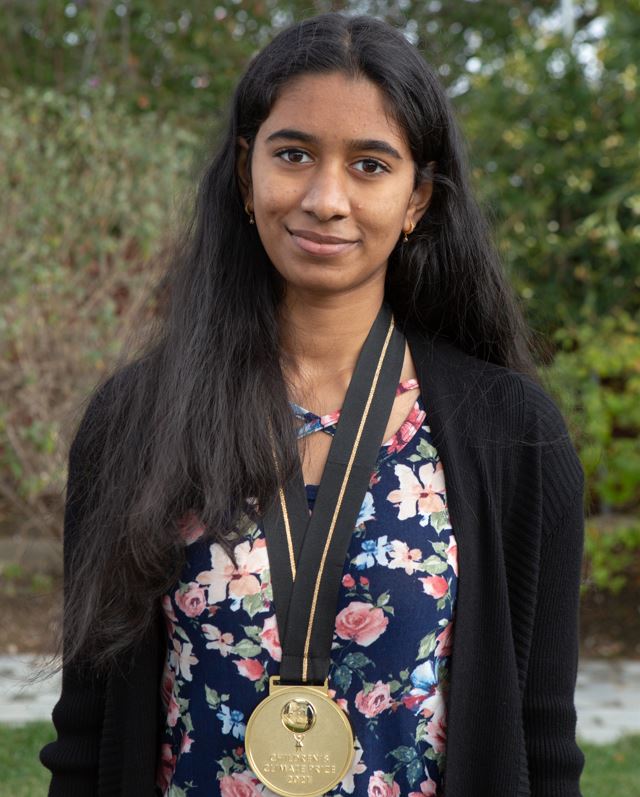

Reshma Kosharaju
Her AI based solution claims to predict forest fires with almost ninety percent accuracy. Reshma’s solution makes use of open data like temperature, humidity, wind speed, soil moisture and human behavior, along with artificial intelligence, to calculate the probability of the forest fire and its extent. “A clear and scalable business concept, with a global approach to accessibility,” is what the jury felt about Reshma’s solution.
Vinisha Umashankar, winner 2020
Resident of Tiruvannamalai, India
Solution: The Solar Ironing Cart
Vinisha has seen numerous ironing carts on Indian streets, all using charcoal to heat the device. ‘There are millions of ironing carts in India and together they must be using tons of charcoal every day’, she thought. Realising that the coal consumes large amounts of wood, pollutes the air and contributes to climate change, Vinisha created a solar powered ironing cart to find a sustainable alternative.


Vinisha Umashankar
My generation and I would live to see the consequences of our action today. I am not just a girl from India, I am a girl of the earth and I am proud to be so. We need to stop talking about old debates but a new vision for new future,” remarked Vinisha at the COP26summit.
Aadya Joshi, winner, 2020
Resident of Mumbai, India
Solution: The Right Green
Deforestation is the second-leading cause of climate change and an issue that Aadya Joshi wanted to address. She founded The Right Green, a BioPower Index, which is a database carrying information about more than 15,000 plant-insect feeding relationships from different eco-regions of India. The Index enables gardeners, landscapers and civic authorities to plant the best biodiversity supporting plants as per the characteristics of the region they are based in.
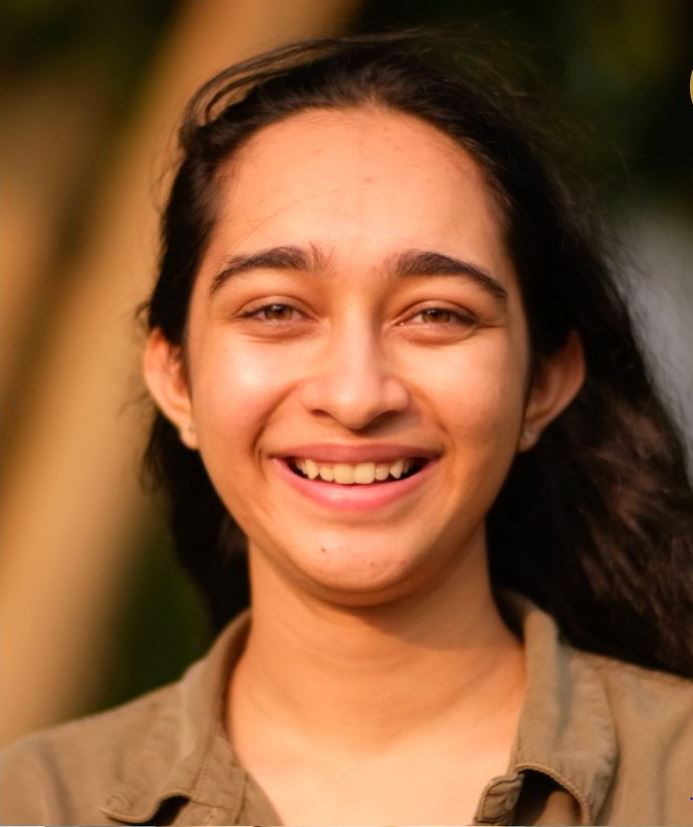

Aadya Joshi
Aadya has also conducted educational and outreach workshops enabling and empowering communities to restore healthy ecosystems, which are rich in biodiversity, to address climate change. “As the winner of the Children’s Climate Prize, I was given the chance to talk at the India International Science Fair and it was a very big moment for me. India’s Prime Minister was there as well as all the heads of the scientific departments in the government,” she said in an interview.
Shreya Ramachandran, winner, 2019
Resident of Fremont, USA
Solution: The Grey Water Project
Shreya witnessed the wastage of water in households and came up with a solution to address this. Realising that almost fifty percent of water used annually in a household can be reused for activities like watering the plants in the garden, she developed the Grey Water Project.
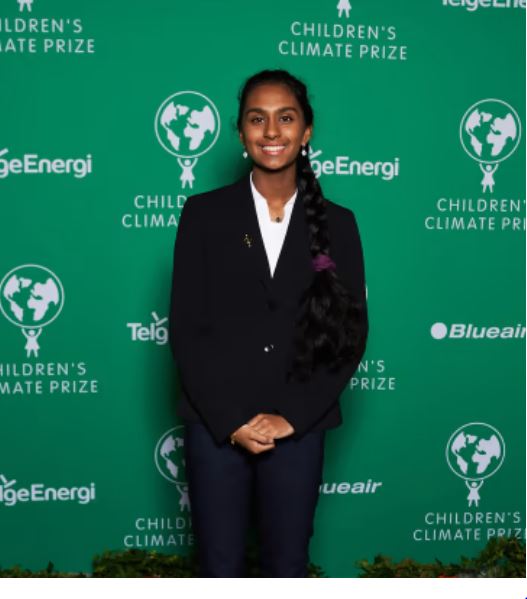

Shreya Ramachandran
She built a grey water cleaning system with soap nuts that make grey water reusable. Shreya has been teaching people how to install their own grey water systems with regular workshops on water reuse and conservation. “Shreya is working to save the source of life,” remarked the jury of children’s climate prize.
Vihaan and Nav Agarwal, winners, 2019
Residents of New Delhi, India
Solution: One Step Greener
Siblings Nav and Vihaan Agarwal founded an NGO, One Step Greener, to fight the deadly air pollution of the Northern India, especially the NCR region. Their organisation strives for a zero-waste future with the goal to reduce air pollution and improve the health and wellbeing of people.
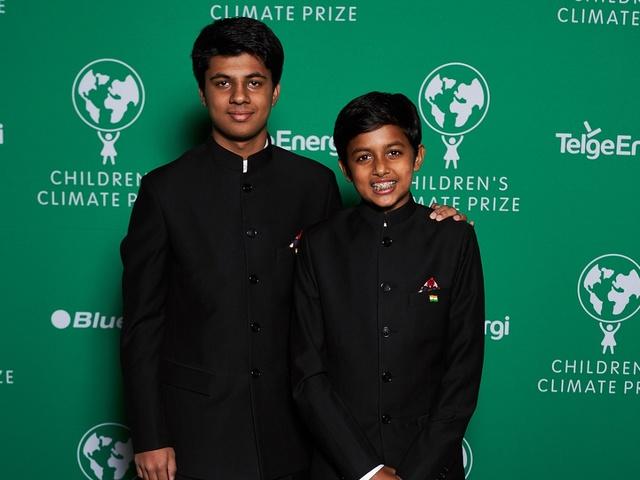

Vihaan and Nav Agarwal
Since they live in New Delhi, which is one of the worst cities in terms of air quality, they have been educating people about the importance of recycling waste at source and offering door-to-door dry waste pick-ups, to counteract the garbage that is burned on large dumps. “We realised that trash and air-pollution are heavily interrelated, and we wanted to do something to change this. This situation can be avoided by taking simple steps,” said Vihan Agarwal in a video to promote good garbage dumping practices.


